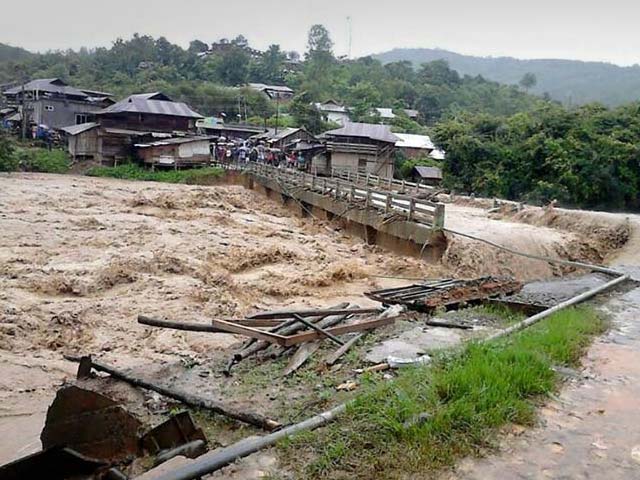Manipur Man Achieves Record Fish Production of 43,765 kg
Introduction: A Historic Achievement in Fish Farming
Fish farming in India has gained immense attention in recent years, with states like Manipur making notable strides. One significant achievement in this field has come from Manipur’s Salam Lokendro Singh, who set a record by producing an astounding 43,765 kg of fish. His exceptional productivity not only earned him the title of “Highest Producer of Fish” but also highlighted the state’s potential in sustainable aquaculture.
Why Fish Farming Matters in Manipur
Fish farming isn’t just about meeting market demands; it’s about providing nutritional security and creating economic opportunities. Manipur’s climate and rich water resources make it ideal for aquaculture, which has become an essential livelihood for many in the region. This sector plays a critical role in supplementing local diets, supporting rural economies, and reducing the state’s dependence on fish imports.
The Journey of Salam Lokendro Singh: Pioneering Aquaculture Success
What makes Salam Lokendro’s achievement remarkable? Producing 43,765 kg of fish isn’t simply about quantity—it requires strategic planning, dedication, and expertise. Lokendro’s journey as a fish farmer in Laphupat Tera, Imphal West, demonstrates the transformative power of focused agricultural practices. By implementing innovative methods and staying committed to high standards, he has proven what’s possible for small-scale farmers aiming for substantial output.
Key Highlights of the 2024 Fish Fair-cum-Competition
The 2024 State Level Fish Fair and Competition was organized by the Directorate of Fisheries, Government of Manipur, as a prelude to the Ningol Chakkouba Festival. Here, Salam Lokendro’s accomplishments stood out, but other noteworthy producers also made their mark:
- Second Place: Ningthoujam Basanta Singh from Khordak, Bishnupur district, produced 17,462 kg.
- Third Place: Laimujam Dinamani from Tentha, Thoubal district, harvested 17,366 kg.
This event recognized not only individual achievements but also the importance of district-level support in promoting fish farming.
An Award for Indigenous Fish Production
In addition to his overall fish production, Salam Lokendro earned the title of “Highest Indigenous Fish Producer,” with 9,735 kg of native fish varieties. This special recognition highlights the importance of preserving local fish species while encouraging sustainable practices.
Community Efforts and Regional Impact
The fair also acknowledged district fishery officers (DFOs) who contributed to the success of their respective regions. Imphal West’s DFO, K Gunabati Devi, secured the title of “Highest Fish Production Officer for Valley,” producing 47,545 kg. Similarly, Chandel district’s DFO, Sapam Jiten Singh, was awarded the “Highest Fish Production Officer for Hill” for producing 2,770 kg.
Fish Fair Production Surpasses Targets
The 2024 fair witnessed a total production of 156,000 kg of fish, surpassing the target of 150,000 kg. This achievement showcases the dedication of Manipur’s fish farmers and the state’s support system, which continuously strives to enhance aquaculture standards and outputs.
Lessons for Aspiring Fish Farmers
If you’re interested in fish farming, there’s much to learn from Salam Lokendro’s success:
- Adopt Strategic Farming Practices: Success in fish farming relies on techniques that optimize growth rates, feed efficiency, and water quality management.
- Understand Your Environment: Manipur’s climate and abundant water resources serve as reminders that understanding local conditions is essential for maximizing yield.
- Focus on Indigenous Species: Preserving indigenous species supports biodiversity and often offers a competitive advantage in local markets.
- Collaboration with Authorities: Local fishery departments provide invaluable resources, training, and support. Engaging with them can open doors to new techniques and funding opportunities.
- Sustainable Practices Are Key: Maintaining a balance between productivity and environmental impact is crucial. Lokendro’s production strategy emphasizes quality over quantity in a sustainable way.
The Role of Government Initiatives and Support
Government support plays a pivotal role in Manipur’s thriving fish farming industry. The Directorate of Fisheries not only organizes events like the State Level Fish Fair but also actively supports local fish farmers by providing access to resources, guidance, and financial assistance. Programs like these foster a collaborative environment that benefits everyone involved in the aquaculture industry.
Conclusion: A Bright Future for Manipur’s Aquaculture
Salam Lokendro Singh’s record-breaking production symbolizes a turning point in Manipur’s aquaculture industry. His story is an inspiration, emphasizing the potential that lies in sustainable fish farming practices. As more farmers in Manipur look to Lokendro’s success, the state’s aquaculture industry will likely continue to grow, paving the way for economic resilience and food security.
FAQs
- Why is fish farming important in Manipur? Fish farming helps meet local demand, supports rural economies, and provides essential nutrients in diets across the state.
- How did Salam Lokendro achieve such high fish production? He utilized strategic farming practices, optimized his methods, and took advantage of Manipur’s favorable climate for aquaculture.
- What fish varieties are farmed in Manipur? Both indigenous and commercial fish species are cultivated, supporting biodiversity and local dietary preferences.
- How does the government support fish farmers in Manipur? Through events, financial aid, and training, the Directorate of Fisheries provides essential resources for fish farmers.
- What impact does the Fish Fair have on the community? The fair encourages competition, recognizes excellence, and fosters community pride in sustainable fish production.





